AliExpress has emerged as a popular online marketplace, attracting a global audience with its vast array of products and competitive pricing.
With the convenience of shopping from anywhere, the platform has become a go-to for dropshippers and consumers alike.
However, with popularity comes the risk of scams, raising questions among users like “Is AliExpress safe?” and “Can you trust AliExpress?”
Understanding these risks is key to a secure shopping experience. This article aims to arm you with the knowledge to identify and steer clear of common scams found on AliExpress.
You’ll learn how to navigate the platform with a critical eye, ensuring that your online sourcing is as reliable and protected as possible.
Key Takeaways
- Verify seller legitimacy and reviews to ensure a safe purchase.
- Be cautious with payment methods and dispute processes to protect your money.
- Use AliExpress buyer protection features for added security.
What Is AliExpress?
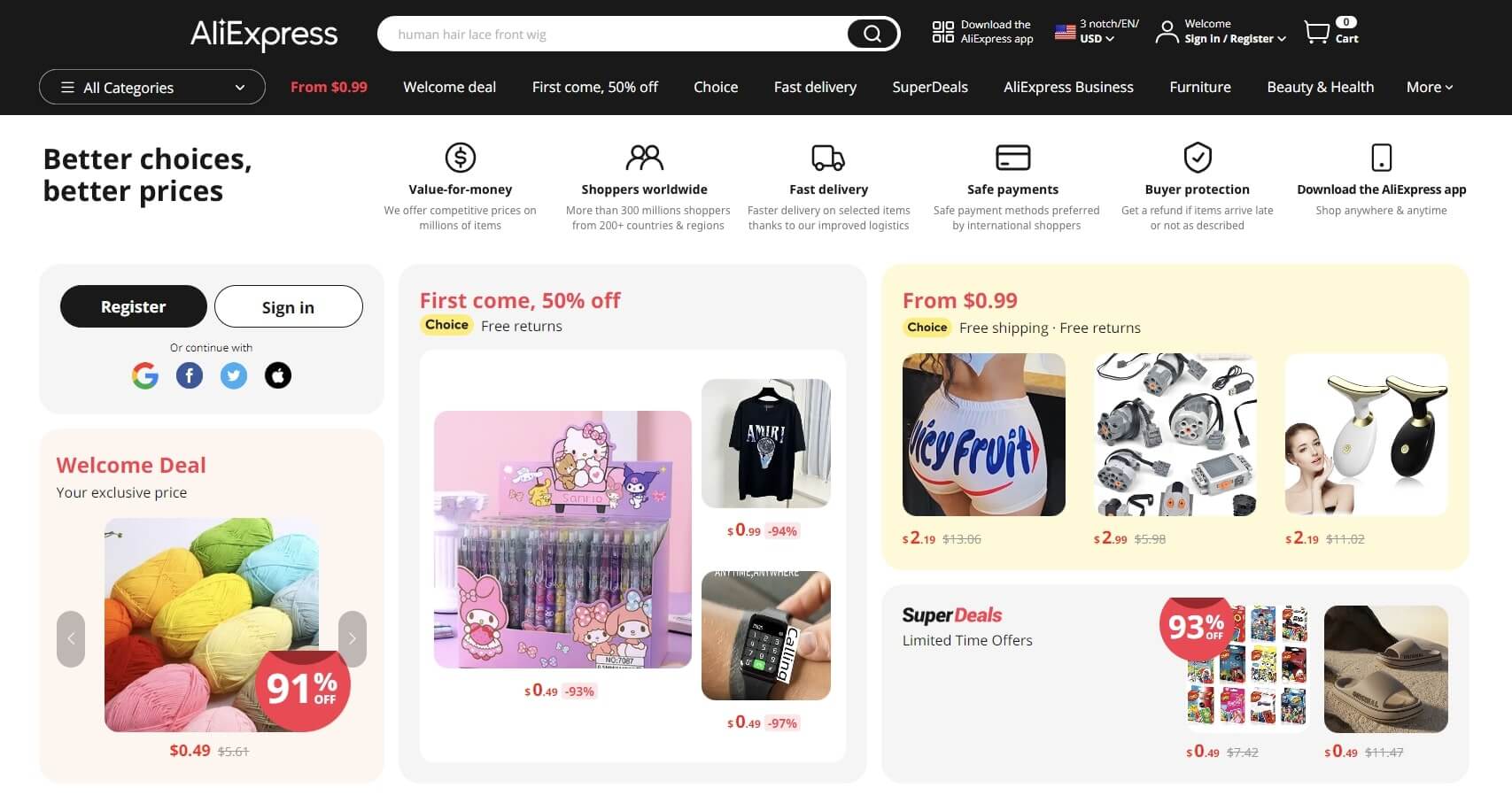
AliExpress is an online retail service based in China, widely recognized for offering a wide range of products at relatively low prices.
Operated by the Alibaba Group, it serves international customers by providing direct access to businesses and factories in China and other countries.
When you shop on AliExpress, you’ll find listings that include electronics, fashion, toys, and much more.
The platform is known for its diversity of items, with thousands of categories to explore. Each listing provides details on product quality, buyer ratings, and seller information to help guide your choices.
AliExpress Buyer Protection is a prominent feature of the service, offering:
- Payment security
- Guarantee on item arrival
- Protection against items not as described
Prices on AliExpress are competitive due to the direct-from-factory model, which often eliminates middlemen. However, the quality can vary, hence it’s crucial to read product reviews and seller ratings carefully.
Here’s a quick list of pros and cons to keep in mind:
Pros
- Very competitive pricing
- Vast product selection
- International shipping options
- Buyer protection policies
Cons
- Variable product quality
- Longer shipping times for certain regions
- Possible customs fees depending on your location
Is AliExpress Legit?
AliExpress, backed by the renowned Alibaba Group, is a well-known global online marketplace that has garnered a significant consumer base.
Many users like you have questioned the legitimacy of AliExpress owing to the platform’s vast number of sellers and products.
To ensure a secure shopping experience, AliExpress has implemented several verification and trust-building measures:
- Buyer Protection Program: This offers a full refund if your order doesn’t arrive or if it’s significantly different from its description. Still, it’s crucial to understand its limitations. Don’t close any disputes unless you’re satisfied with the resolution. If your buyer protection is about to expire, open a dispute.
- Seller Ratings and Reviews: You can check feedback scores and customer reactions to a seller’s performance, which encourages transparency.

When evaluating whether AliExpress is legitimate, consider these points:
- Reputation: AliExpress is not a scam site; it has a TrustScore that reflects the satisfaction of millions of users worldwide.
- Verification: Sellers on AliExpress undergo a verification process before they can list products, providing an additional layer of security.
In your practice as a dropshipper, it’s critical to perform your due diligence:
- Inspect seller ratings and read consumer reviews.
- Look for products with detailed descriptions and legitimate customer feedback.
Can You Get Scammed on AliExpress?
Yes, just like any large online marketplace, there’s a risk of scams on AliExpress. It’s important to recognize that fraud can happen, but with the proper knowledge, you can safeguard yourself.
If you do encounter a scam, take action immediately:
- File a complaint.
- Request a refund.
- Escalate to a dispute if necessary.
How Can You Tell a Scam on AliExpress?
Recognizing a scam on AliExpress is crucial for your safety as a shopper. Here’s how you can spot suspicious listings and protect yourself:
1. Check the Seller’s Feedback.
A seller’s reputation is depicted through their feedback score. Look for a high score and read through the comments. Sellers with consistent negative feedback may be a red flag.
2. Compare Prices.
If a deal seems too good to be true, it often is. Cross-check the price of the item you’re interested in with similar listings. Extremely low prices may indicate a scam.
3. Read the Product Reviews.
Product reviews give you an insight into the quality of the item and the seller’s reliability. A lack of reviews or a pattern of generic, positive reviews might point to fraudulent activities.
4. Assess the Seller’s Communication.
Genuine sellers are usually transparent and communicate clearly. Be cautious if a seller avoids answering your questions or provides vague responses.
5. Payment Methods.
AliExpress offers a secure payment system. Be wary of sellers who insist on using unsecured payment methods or ask for payment outside the platform. Such actions can lead to PayPal scams or credit card fraud.
10 Common AliExpress Scams You Need to Avoid
When shopping on AliExpress, it’s essential to be aware of potential frauds to protect yourself and avoid losses. Below are some common scams you should watch out for:
1. Payment Scam
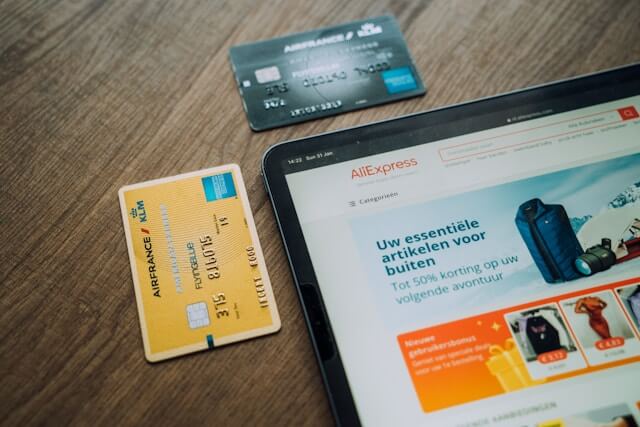
When shopping on AliExpress, you might encounter Payment Scams. Typically, a payment scam happens when a seller tries to convince you to pay outside the secure AliExpress platform.
Here’s how some of these scams might unfold:
- A seller may ask you to pay via PayPal and then insist you close any open disputes on AliExpress before sending the refund. In these cases, you may never get the refund once the dispute is closed.
- You may receive emails or messages that seem like they’re from AliExpress, asking for payment details to release shipments. These can lead to fake websites aiming to steal your information.
To avoid these scams, follow these tips:
- Use AliExpress’s Payment System. Always pay through AliExpress’s own payment system, which provides you with buyer protection.
- Check for Secure Payment Options. Look for secure payment methods recommended by AliExpress, such as credit cards or AliExpress Pocket.
- Review Seller History. Choose sellers with good feedback and a track record of positive reviews.
2. Tracking Number Scam
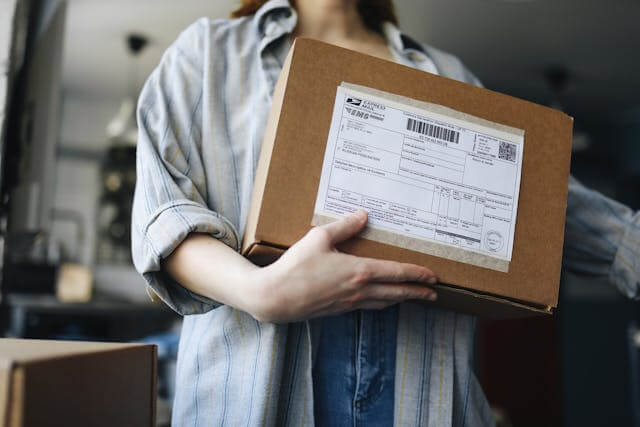
When you shop on AliExpress, it’s crucial to be aware of the tracking number scam. This is where you receive a tracking number that appears legitimate, but it’s actually fake or belongs to a different shipment.
Here’s how it works:
- Fake Tracking: After you make a purchase, a seller might send you a tracking number. This number, when checked, seems to reflect a package in the delivery process.
- Unrelated Deliveries: Eventually, the tracking status shows as “delivered,” but to a location far from yours. This could mean the number is real, but was for another customer’s package.
Here are some scam signs:
- Immediate Tracking Number: You get a tracking number too quickly, often immediately after purchase.
- Mismatched Locations: The delivery is confirmed to an unrelated address, sometimes hundreds of kilometers away.
- No Seller Communication: The seller becomes unresponsive when you inquire about the tracking details.
How to avoid tracking number scam:
- Only buy from trusted sellers with a solid history and high ratings.
- If the price seems too good to be true, it might be a red flag.
- Use AliExpress’s built-in dispute resolution if you suspect a fake tracking number. Never confirm delivery until you’ve received your package.
3. Extra Money Scam

When shopping on AliExpress, watch out for the Extra Money Scam. This is where sellers ask for more money after you’ve already paid. Here’s how it typically unfolds:
- You make a purchase at an agreed price.
- The seller contacts you claiming shipping costs more than expected.
- The seller requests additional payment outside the AliExpress platform.
Remember, legitimate sellers bear all costs, before final purchase, including shipping costs. Here are signs to stay vigilant:
- Unexpected Messages: Be cautious if a seller messages asking for extra fees post-purchase. This is a red flag.
- Sob Stories: Sellers might try to guilt you into paying more with a story. AliExpress policies protect you from such tactics.
- Off-site Transactions: Never agree to send additional money through external payment methods.
To guard yourself, consider:
- Clear Communication: Always keep conversations on AliExpress.
- Check Seller’s History: Reviews and ratings provide insights into seller’s reliability.
If an issue arises, AliExpress has a dispute resolution process to assist. Don’t be pressured into paying more. Stick to the platform’s procedures for a secure shopping experience.
4. Fake Compliance Certifications

When shopping on AliExpress, you might come across products boasting certifications like RohS, CE, and FDA. These are meant to reassure you of an item’s safety and quality.
However, some dishonest sellers exploit your trust by flashing fake compliance certifications.
Be wary of suspicious certifications:
- Focus on the seller’s history. A new seller with high-end certificates should raise a red flag.
- Compare product images to those from verified suppliers. Discrepancies in labeling can indicate a scam.
- Quality vs. Price: A certified product at an unbelievably low price may be a lure.
Furthermore, you should research the certificates themselves. A genuine CE mark, for instance, follows a unique design. If it looks off, it could be counterfeit.
For factual insight, know that some certificates require products to undergo rigorous testing by prestigious institutions. So, if a seller can’t prove this backstory, the certificates could be questionable.
Lastly, AliExpress offers a dispute resolution process. If you suspect you’ve fallen prey to fake certification, don’t hesitate to report and seek a resolution.
Remember, when in doubt, it’s always prudent to ask the seller for verifiable proof of certification before sealing the deal.
5. Closing a Dispute and Resending Scam

When shopping on AliExpress, you might bump into a tricky situation known as the Closing a Dispute and Resending Scam.
If you open a dispute due to issues like not receiving your product, the seller may contact you with a tempting proposal. They might ask you to close your dispute, promising to send a new product or issue a refund.
The catch here is that once you close the dispute, your buyer protection may expire, and you could end up with nothing.
Here’s how it happens:
- You open a dispute due to issues with your order.
- The seller contacts you promising a resolution—such as resending the item—if you close the dispute.
- Trusting the seller, you close the dispute.
- Later, you find that you can’t reopen the dispute, and the seller becomes unresponsive.
Signs to watch for this type of scam:
- The seller is very insistent that you close the dispute quickly.
- You receive promises of additional benefits or rewards for closing the dispute.
- There’s no official confirmation from AliExpress regarding the seller’s promises.
To avoid falling for this scam, always remember:
- Never close a dispute before receiving a resolution that you’re satisfied with.
- Ensure that any agreement is documented and endorsed by AliExpress itself.
- Be aware of the buyer protection period and do not let it expire while your issue is unresolved.
6. Incorrect Shipping Method

When shopping on AliExpress, paying attention to shipping details is crucial. There’s a scam that involves the incorrect shipping method.
You might select and pay extra for a specific shipping method because it’s faster or provides better tracking. But, some sellers may send your package using a slower or cheaper option.
Here’s how to spot this scam:
- Check the shipping method after your item is dispatched. It should match what you paid for.
- Monitor the delivery time. If it’s taking longer than promised, there might be an issue.
- Examine the tracking information. If it’s less detailed than expected, the seller might have switched services.
Take these steps if you have the risk to fall for this scam:
- Once your item arrives, confirm the shipping method used.
- Contact the seller if there’s a discrepancy between what you chose and what was used.
- If the seller isn’t cooperative, file a dispute with AliExpress to potentially get a refund for the difference in shipping cost.
Keep in mind, some sellers may promise to ship your item quickly but then fail to do so. While Aliexpress policies are in place to protect you, always remain vigilant to ensure you get the service you paid for.
7. Re-sending Package With a New Order

Beware of the Re-sending Package With a New Order scam when purchasing on AliExpress. In this scenario, a seller might approach you with what seems like a helpful offer.
Here’s how it unfolds:
- Seller Proposes Resend: After a dispute or issue with the original order, the seller suggests sending you the item again.
- New Order for $0.01: You’re instructed to place a second order for the same product but at a drastically reduced price, usually $0.01.
- New Tracking Code: The seller provides you with a new tracking number once the sham new order is shipped.
- Buyer Protection Expires: With your attention on the new order, the buyer protection on your original order may lapse without you realizing it.
These steps can lead to losing your money as well as any buyer protection you originally had. To avoid falling victim to this scam, keep in mind:
- Always Check Seller Ratings: High ratings and positive feedback can indicate a trustworthy seller.
- Track Buyer Protection: Keep an eye on the countdown and never let it expire before resolving your issues.
- Beware of Unusual Requests: Asking for a new order at a price that is too good to be true should raise a red flag.
8. PayPal Refund Scam
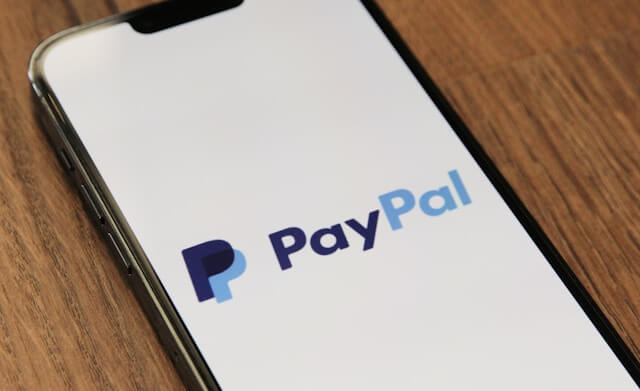
When you shop on AliExpress, you might run into the PayPal refund scam, a common deceit that can cost you money if you’re not careful. Here’s how it typically unfolds:
- Issue with Your Order: Imagine you’ve bought an item but there’s a problem. The product might be faulty, not as described, or it never arrived at all.
- Open a Dispute: Your next step is to open a dispute on AliExpress for your money back.
- Seller’s Promise: The seller contacts you promising a full refund through PayPal, but there’s a catch. They ask you to close the dispute first.
- The Trap: If you close the dispute and provide your PayPal details, the refund doesn’t come. Worse still, you now can’t reopen the dispute on AliExpress, leaving you out of pocket.
Here’s what you need to watch for to avoid falling victim:
- Promises of PayPal refunds that hinge on you shutting the dispute on AliExpress first.
- A sense of urgency from the seller pushing you to act fast or lose out on your refund. They might even offer extra money or goods to entice you.
- Requests for your PayPal information before giving you the refund.
Remember, never close a dispute until the money is safely in your account or the issue is resolved. If you’re discussing refunds through PayPal, check AliExpress’s guidelines on payment to be sure you’re following the correct process.
9. Disappearing Seller Scam

When shopping on AliExpress, you might encounter the Disappearing Seller Scam.
This scam involves a seller who vanishes after you’ve made a payment, leaving you without your product and with little chance of getting a refund.
Here’s how you can spot and avoid falling victim to it:
- The seller has very few reviews or an account that seems newly created.
- Prices of products are significantly lower than the average.
- The seller is pushy about completing a transaction outside of AliExpress.
How It Works:
- You find an item at a price that seems too good to be true.
- After you pay, the seller’s account disappears with no trace of your order.
- You’re left with no way to contact the seller or recover your payment.
Signs to Look Out For:
- No Communication: Sellers that don’t respond to questions or concerns.
- Odd Payment Requests: Any request to pay through methods other than AliExpress’s secure platform.
- Rushed Transactions: Pressure to complete the purchase quickly.
Preventive Measures:
- Check Seller’s History: Look for a seller with a solid track record and positive feedback.
- Use AliExpress Payment System: Always use AliExpress’s secure payment method for protection.
- Be Patient: If a deal seems rushed, take a step back and reconsider.
10. Friend Account Payment
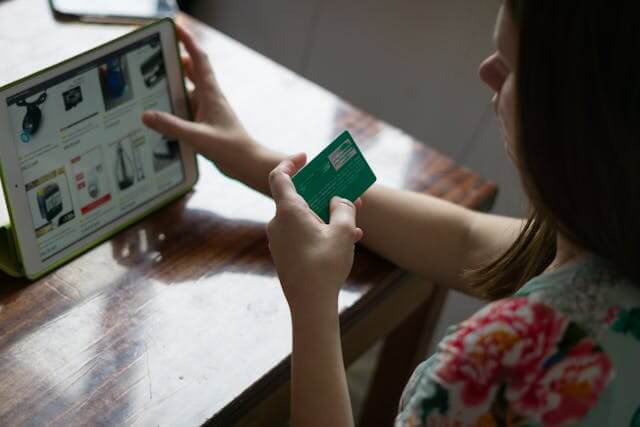
When shopping on AliExpress, you might encounter the Friend Account Payment scam. It’s a tactic scammers use to sidestep AliExpress’s protection.
They may ask you to transfer money directly to a friend’s bank account instead of using the platform’s secured payment methods.
Here’s how it generally unfolds:
- After you commit to buying an item, the seller asks you to transfer funds to a friend’s or an alternative account.
- They may promise you benefits like discounts or faster shipping for using this method.
Be cautious! This is a red flag. AliExpress offers an escrow service called Alipay which safeguards your payments until you confirm receipt of your order.
Signs to look out for:
- Unusually Low Prices: Often too good to be true.
- Direct Payment Requests: Outside the AliExpress platform.
- Pressure Tactics: Urging you to bypass the usual checkout process.
Remember, once you pay outside of AliExpress, they can’t help you if something goes wrong. Stick to secure payment methodsthrough AliExpress itself to protect your money.
If a seller persistently requests alternative payments, consider it a huge warning sign.
How to Not Get Scammed on AliExpress
1. Check Seller Credentials.
Always review the AliExpress buyer feedback before making a purchase. A seller with a high number of positive reviews is typically more trustworthy.
2. Use Secure Payments.
Make your transactions within AliExpress using their secure payment system. This ensures that your payment is protected, and you’re less likely to be a victim of fraud.
3. Stay On-Site.
Keep all communications and transactions on AliExpress. Avoid sellers who suggest moving the conversation or payment off the platform.
4. Understand Buyer Protection.
Familiarize yourself with AliExpress’s buyer protection policy. Knowing the timeframe for opening a dispute can help protect your purchase.
5. Set Realistic Expectations.
Be mindful of pricing that seems too good to be true. Extremely low prices might be a sign of counterfeit or low-quality products.
6. Verify Product Authenticity.
If it’s a brand name item, take the time to compare the listing with the official brand’s specifications to ensure authenticity.
7. Documentation.
Keep a record of all transactions, messages, and product descriptions in case you need to open a dispute later.
8. Shipping and Tracking.
Select a shipping method that includes tracking. This way, you can monitor your package’s journey and be alerted to any unusual delays.
What to Do if You Get Scammed on AliExpress?
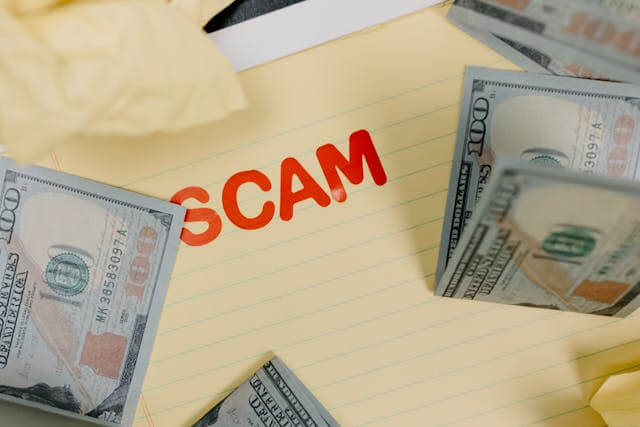
If you realize you’ve been scammed on AliExpress, it’s important to act quickly and methodically. Here’s what to do:
1. Gather Evidence.
Before proceeding, collect all relevant evidence. This includes screenshots of the product listing, your order confirmation, any communication with the seller, and payment receipts.
2. Contact the Seller.
Reach out to the seller directly. Sometimes, issues can be resolved without escalating to a formal dispute if it’s a simple misunderstanding or a shipping error.
3. File a Dispute.
If the seller is unresponsive or unwilling to help, file a dispute through AliExpress immediately. Describe your issue clearly and upload your evidence.
4. Request for a Refund.
After filing a dispute, AliExpress will mediate between you and the seller. If they side with you, a refund process will begin.
5. Learn and Adapt.
Regardless of the outcome, use this experience to learn more about avoiding future scams. Look for sellers with high ratings and a substantial number of positive reviews.
6. Review and Report.
Leave an honest review about your experience to assist other buyers. Report any fraudulent activities to AliExpress so they can take action against the seller.
How to Choose a Reputable Supplier on AliExpress
When shopping on AliExpress, the reliability of the supplier is paramount. Here’s a straightforward guide to help you identify trustworthy sellers and protect your purchases.
1. Check Seller Ratings.
Start by looking at the seller’s overall rating. A higher rating generally indicates a more reliable seller. Look for sellers with ratings close to 100%, as this reflects a consistent record of customer satisfaction.
2. Read Customer Feedback.
Go through the feedback section of the supplier’s page. Previous customers’ experiences can provide valuable insights into the quality of the product and seller reliability. Take note of comments regarding shipping times, product quality, and customer service.
3. Evaluate Seller Verification.
AliExpress verifies certain sellers to distinguish them as trustworthy. These verified sellers have undergone additional checks to confirm their business authenticity.
Look for badges like “Top Brand” or “Verified Seller” on their profile for added reassurance.
4. Sift Through Reviews.
Product reviews often include customer photos and detailed accounts of their experiences. These reviews can help gauge whether products meet your expectations and confirm if the seller is trustworthy.
5. Examine Trust Signals.
Trust signals further validate a seller’s legitimacy. These can include the store’s age, number of followers, and number of products sold. More established stores with a large following and high sales volume can be more reliable.
6. Assess Communication.
Before making a purchase, reach out to the seller with any questions. Their responsiveness and willingness to provide information can indicate their customer service quality.

Frequently Asked Questions
Navigating the waters of online shopping can sometimes be tricky, especially when it comes to finding deals and ensuring safety.
Here, you’ll find clear and helpful answers to some of the most common questions about shopping on AliExpress and avoiding potential scams.
Is AliExpress Safe to Buy From?
Absolutely, AliExpress is a safe platform for online shopping, with a comprehensive buyer protection program that covers your purchases from click to delivery.
It’s important to be mindful of seller ratings and customer feedback before purchasing to ensure the best experience.
Why Are Prices on AliExpress Lower than Other Online Retail Platforms?
AliExpress products are often priced lower because they typically come directly from manufacturers or wholesalers based in China.
This cuts out the middleman, which can considerably reduce the overall cost. Remember, lower prices might also reflect the quality of the products.
How to Report a Seller on AliExpress?
If you have a concern with a seller, you can report them directly through the AliExpress platform. Go to your order detail page and click on the ‘Report Item’ or ‘Report Seller’ button to file a complaint about a seller’s conduct.
Is It Safe to Use Credit or Debit Cards to Avoid AliExpress Scam?
Using credit or debit cards on AliExpress is typically safe as the platform uses secure payment systems to protect your transactions.
However, always make sure to only transact within AliExpress’s secure payment platform and never share your card details with sellers or via email to safeguard your financial information.
How Does a Dropshipping Agent Help You Avoid AliExpress Scams?
A dropshipping agent can act as your intermediary, verifying goods and ensuring that order fulfillment meets your standards.
This can help you mitigate risks, as the agent will handle product quality control and shipping operations, adding an extra layer of protection against scams.
Final Words: Staying Alert to AliExpress Scam Risks
Shopping on AliExpress can be a valuable experience if you remain vigilant. Keep in mind these key points to shield yourself from scams:
- Authenticate Seller Information: Always check seller ratings and customer feedback before making a purchase.
- Secure Payment Methods: Opt for AliExpress’s own payment system or other secure options to protect your financial data.
- Understand Dispute Resolution: In case of an issue, know how to open a dispute with AliExpress to seek a refund or resolution.
- Recognize Phishing Attempts: Be wary of emails or messages with suspicious links that might appear to be from AliExpress.
- Personal Data Safety: Never share your personal or payment information with sellers directly.
Remember, while AliExpress is reputable, staying educated on these practices will contribute to a safer shopping experience.
Should you wish to find high-quality products from China without the hassle, feel free to request a free sourcing quote from us at NicheDropshipping—your safe bridge to trusted suppliers.
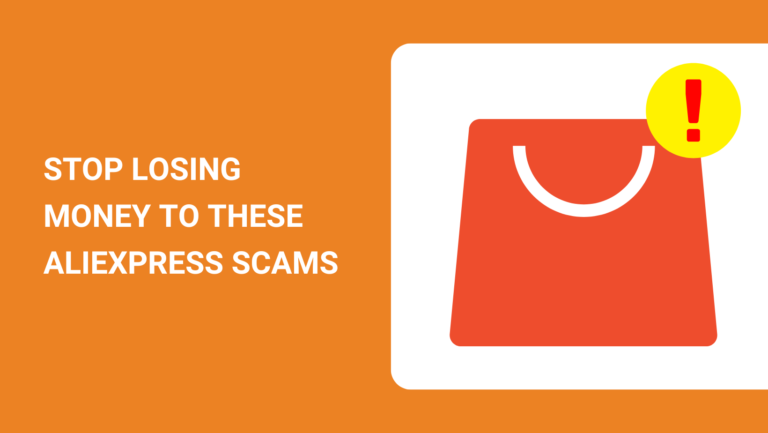

I have been a customer of AliExpress for many years. Buyer protection is in theory excellent, but in reality, it is the greatest scam! A couple of years ago I usually ended up with just judgements in disputes, but it took a lot of work. Now I rarely get any justice as they have changed dramatically and use return and refund instead of only refund. For me, the return cost is about $28, which is stupid for most orders and I end up paying a lot to end up with nothing. This is used by both sellers and the platform as blackmail. They might agree to your dispute but judging for a return knowing that it is just stupid to return the item as you will not get the money back. AliExpress lay almost all responsibility on the buyer and does nothing to stop plain fraud, dishonesty and lies, and there is a lot, and they are in reality protecting dishonest sellers. They recently changed both the dispute and appeal processes and they are now just a parody of justice! There are still decent shops on the platform, but if you end up with a dispute, you are very likely to not get your money back! Unless you are willing to lose your money and can accept that warranty, user rights and support are in reality close to zero, you should avoid AliExpress. eBay is much better, even if prices normally are higher!
AliExpress has changed recently, something is going on there, and it’s not good. They are now flooded with “stores” selling fake or extremely low quality versions of products. Years ago, I had very good experience with them, had made many purchases, but now, horrible experiences, will not go there again.
It seems they have abandoned any sort of quality or fraud control. Anyone can sell anything, and Aliexpress does not care, and they’ve made the dispute and refund process almost impossible to use.
Sorry, but that’s just how it is.
No, I’m not complaining about slow shipping and so on, I’m citing outright fraud, very obvious selling bogus products, the most recent being completely fake USB external drives that either didn’t work at all, or did not have anything even close to the advertised capacities
AliExpress is a hit and miss place, have been shopping more than 10 years, many items, so many orders… some good, some bad. Just recently, as of 2023 January, they have lots of sellers using fake USPS labels and the items get stuck in the postal office due to shipment fees not paid. The only way to get them out is to pay postage fees and it does not work always. If the buyer cannot get the items out of USPS and open a dispute on AliExpress, there is only half of the amount paid is refunded. So the buyer gets nothing and pays half the price plus the headache. My impression so far AliExpress and other Chinese venues is their serious issues with integrity. There might be some exceptions but there is a significant number of Chinese sellers who are dishonest and always keep an open eye to scam buyers if there is a possibility or a legal cavity. I am not sure if this comes from Chinese culture, government, perception of life or something else underlying, but honesty is a big piece is missing nowadays. And it is so unfortunate that they are the largest hardware and material supplier of the entire world.
I got disappointed by AliExpress recently. As per 2023, you will have problems to get your money back if the seller ships you whatever in a tracked mail.
Had it that I received a completely worthless different item instead of my order.
Ali just offers to refund if you return the product and pay insanely high shipping fees towards China. And I won’t count on the parcel to actually arrive and refund happens. Potentially the seller later claims that the returned product is not his and refuses further the refund based on this.
Shop itself was around many years and had relatively good ratings. Maybe situation is different for higher priced items where shipping costs are neglectable. I will try to avoid Ali as much as possible. Unfortunately, some products/electronic components are only available there as non-commercial buyer.
Some shops seem to offer “local returns”. That might be an option, but I have never tried.
Hi, I have similiar problems with AE.
I bought from 2 sellers LFP cells – of course new, of course grade A. But after testing it occured these are e-waste, old, used, worn cells. It was very difficult to get AE confirm the fault is the seller but they agreed I sent back the faulty cells on the seller expense. Of course I have to pay for the return shippment but they will pay me back.
The problem is both sellers do not intend to customs clearance the packages because they have to pay an extra tax and duties. So they never receive the return thus never confirm they get it. And it makes impossible to close the claim and get the shipping cost money.
EliExpress is a scam 🙁
I have just been deceived, the seller put a photograph of the product, and sent me a completely different one, Aliexpress is a place where scammers abound, it is not reliable, I prefer to pay a few dollars more on Amazon or Ebay, but I know that I will not be scammed and The products are quality products, what you see in the photograph is what arrives in your mail. I never will buy on Aliexpress again.
Aliexpress buyer protection has become fake this year. In the past I bought a lot from AE with really little problems which were always solved in a proper way. But now AE cooperates with fake shipping companies like Fardar that have fake hotlines and WA numbers and email addresses that are never answered. These companies forge Proof of delivery and then AE closes the buyers dispute without any evidence that parcel is actually delivered. They even do not disclose which shipping company they contacted for the Pod, how they contacted this company and who signed for the delivery. Everything they keep hidden that is very tricky. Only option is to contact your credit card company and try to get your money back. But then AE and buyer have been succesfull because they have the money without delivery the parcel !
Putting AliExpress up on a throne is a real false claim. Two out of my last four orders were delivered to the wrong address. After may nasty Emails from AliExpress following my refund request, They said my request was invalid. I lost all the money. This started when AliExpress went to PiggyShip delivery service. Piggyship provided a photo of the delivery location, which was not my house. When confronted with the evidence, both Piggyship and AliExpress told me to go to hell. Don’t buy from AliExpress if shipped by Piggyship. Don’t buy from AliExpress.
I bought an expensive product of a company Henan Canche Industries on AliExpress and the goods we received were not what we bought. The product was of extremely low quality, poor workmanship and to make it worse highly unsafe. I opened a complaint through their site, and they said they were going to get back to me, but I never heard back from them despite having contacted them multiple times. Later, I found they had closed my case without me knowing. Additionally, I sent AliExpress an extensive formal written complaint with all the evidence attached and never got a response. I followed up with another two emails and AliExpress chose to ignore me. I have lost US $22,000 and no one can help. Buyer beware do not buy from AliExpress or HENAN CANCHE INDUSTRY CO. LTD!